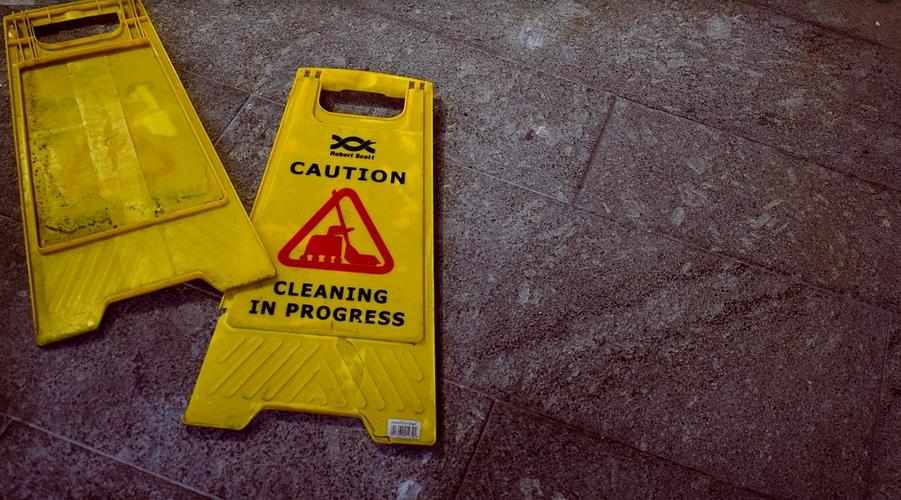In premises liability cases where a slip-and-fall injury has occurred, a common defense by the owner of the premises is that the condition that caused the plaintiff’s injury was “open and obvious,” meaning that the plaintiff should have known or actually did know about the condition. In many cases, this knowledge would have to come about because the plaintiff saw the condition and ignored it. For instance, if a plaintiff saw a “wet floor” sign, and walked through that wet area anyway, the condition causing their injuries would have been open and obvious.
However, if there is a condition that is not easily seen, or a condition that does not have any signage to warn a person, then the condition itself is not open and obvious, and the owner of the premises may be subject to liability for that condition. A recent Indiana Court of Appeals case, Lowry v. SCI Funeral Services, Inc., dealt with whether or not a plaintiff could recover for their injuries in a slip-and-fall accident when the source of the accident was “open and obvious.”
This case involved two people, the Lowerys, who were at a cemetery visiting a family member’s interment site. On the way to the site, Donald Lowery attempted to take a shortcut at the corner of two intersecting sidewalks, and when he did this, he twisted his ankle on the uneven ground between the grass and the sidewalk, causing him to fall on Barbara Lowery, and injuring them both.
At trial, Donald noted that he was the one who wanted to take the shortcut and he did notice the difference between the ground and the sidewalk. The trial court also noted that the only duty that the cemetery had was to ensure that the sidewalks were in a safe condition. The Court here noted that the sidewalks were in safe condition, and attributed the Lowerys’ injuries to the fact that Donald tried to take this shortcut.
The Court also looked to the Restatement of Torts to determine whether or not the cemetery had a duty to do anything more, and concluded the same as above, just stating that the cemetery had done all it was required to do to make its sidewalks safe.
Overall, how does this potentially impact a plaintiff’s case? Well, a plaintiff must show that the condition that caused their injury or injuries was not open and obvious. If they cannot show that the condition was not open and obvious, then they are not likely to prevail in court. However, if a condition was not open and obvious, and it was likely that the condition was known, then plaintiffs would be likely to prevail in a suit against that company.
The biggest thing to take away from this case is that plaintiffs must show that a condition was not open and obvious, because if they cannot show this, then defendants are likely to win in a premises liability case.
If you or a loved one have been affected by an injury, accident, or death, contact an experienced personal injury attorney at Hurst Limontes, LLC. We have decades of combined experience fighting for our clients in any number of personal injury claims. Call 317-636-0808 or email us for a FREE and confidential consultation.





